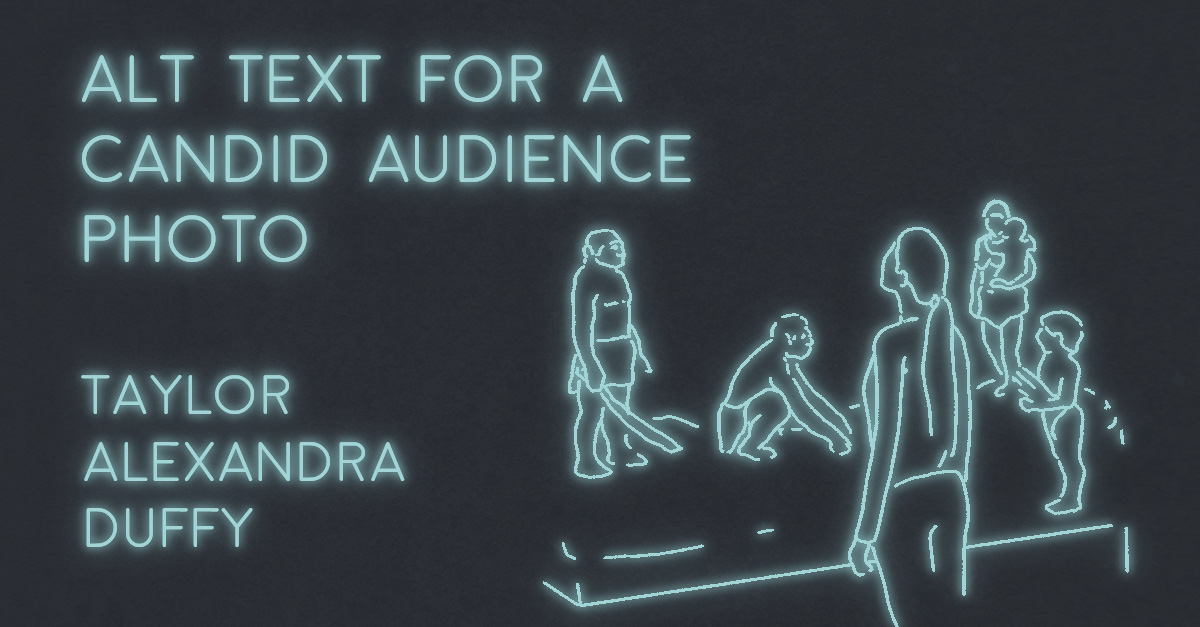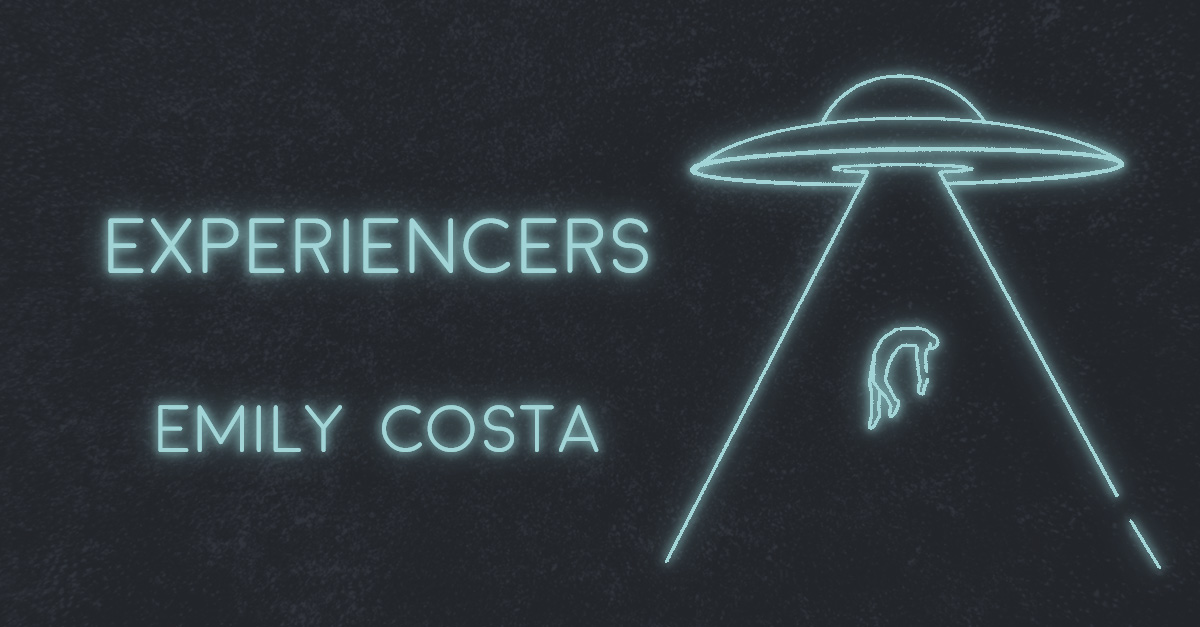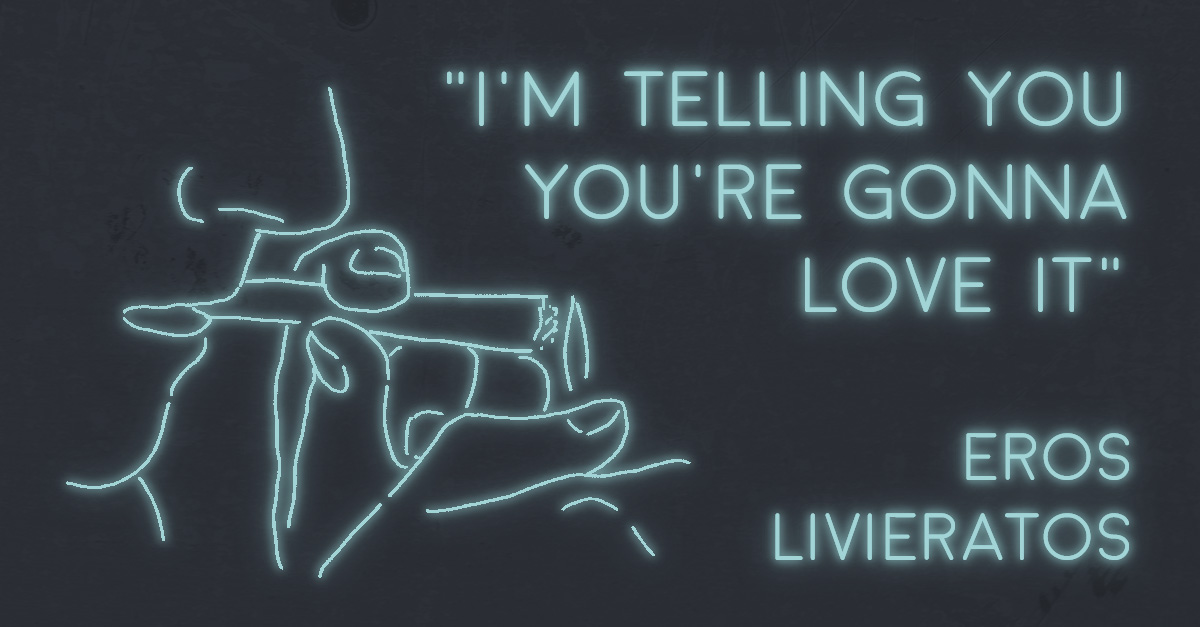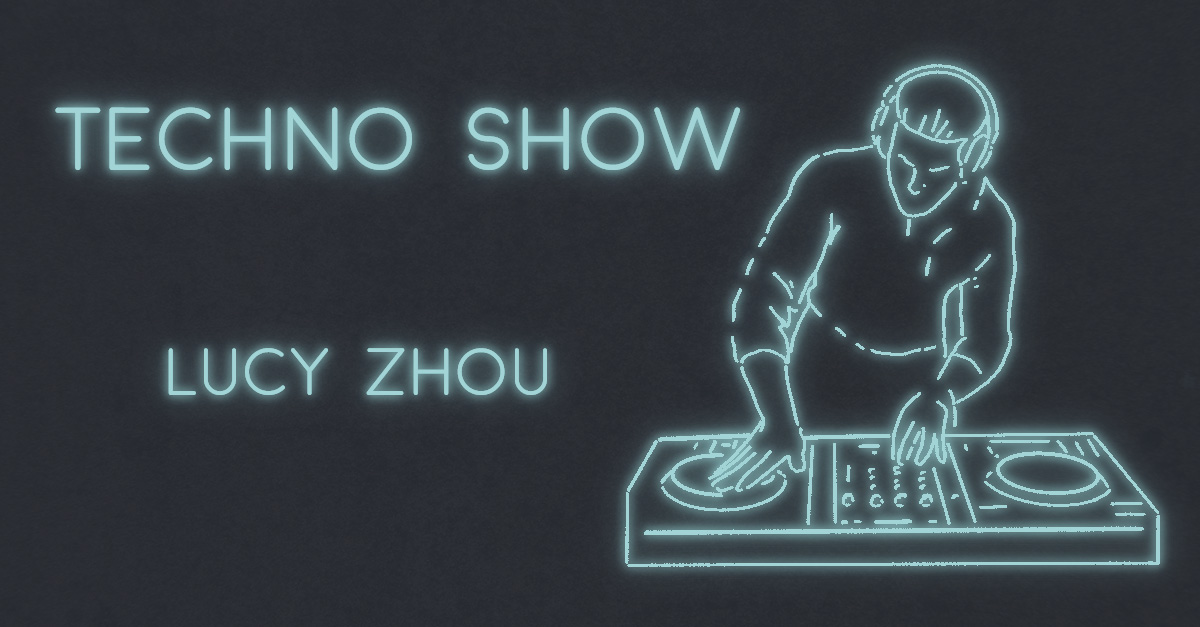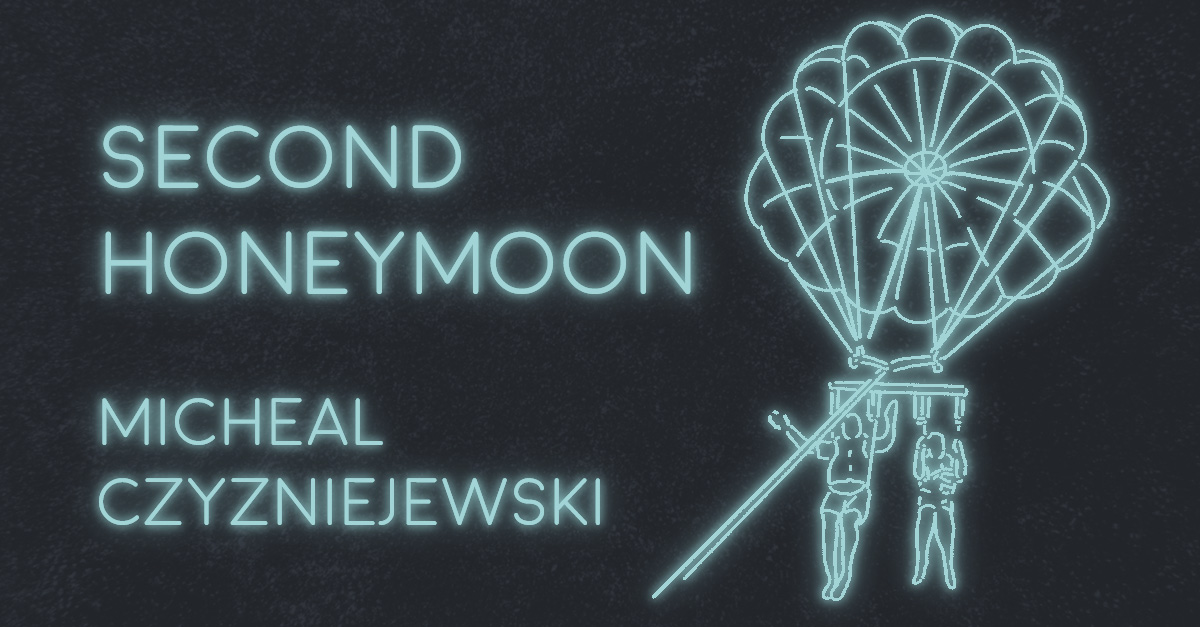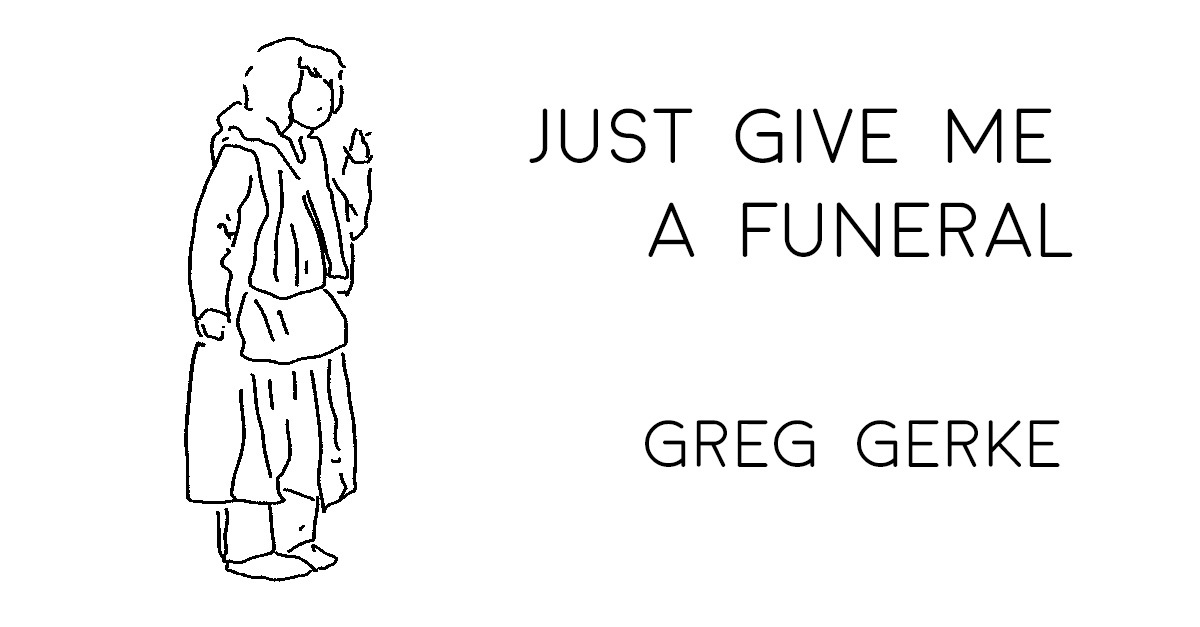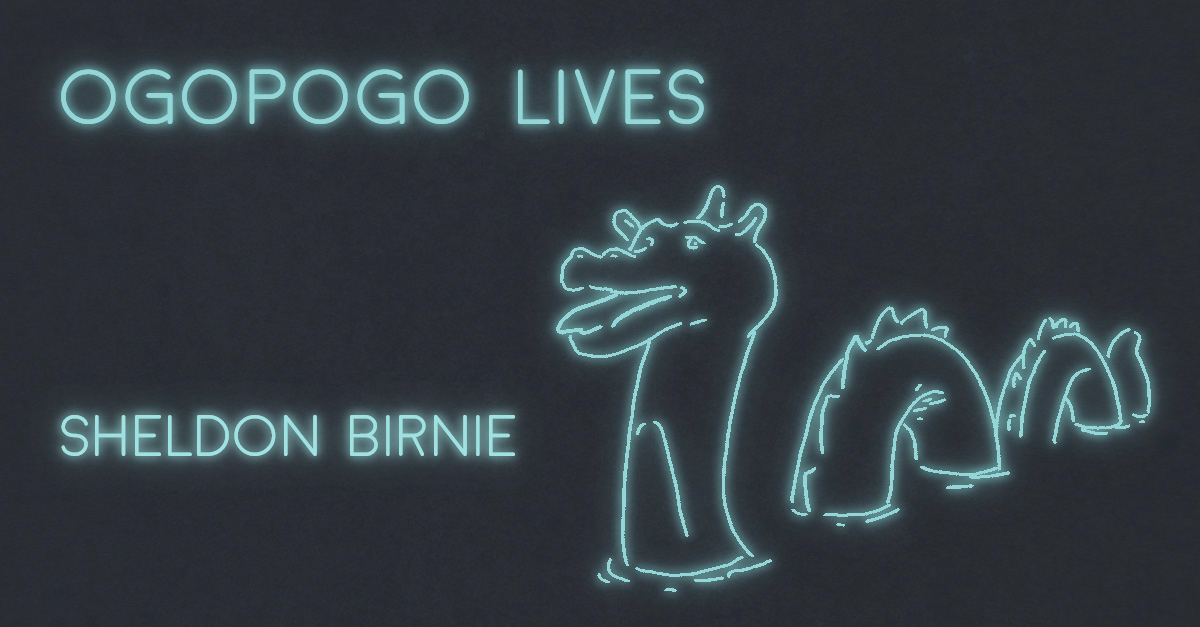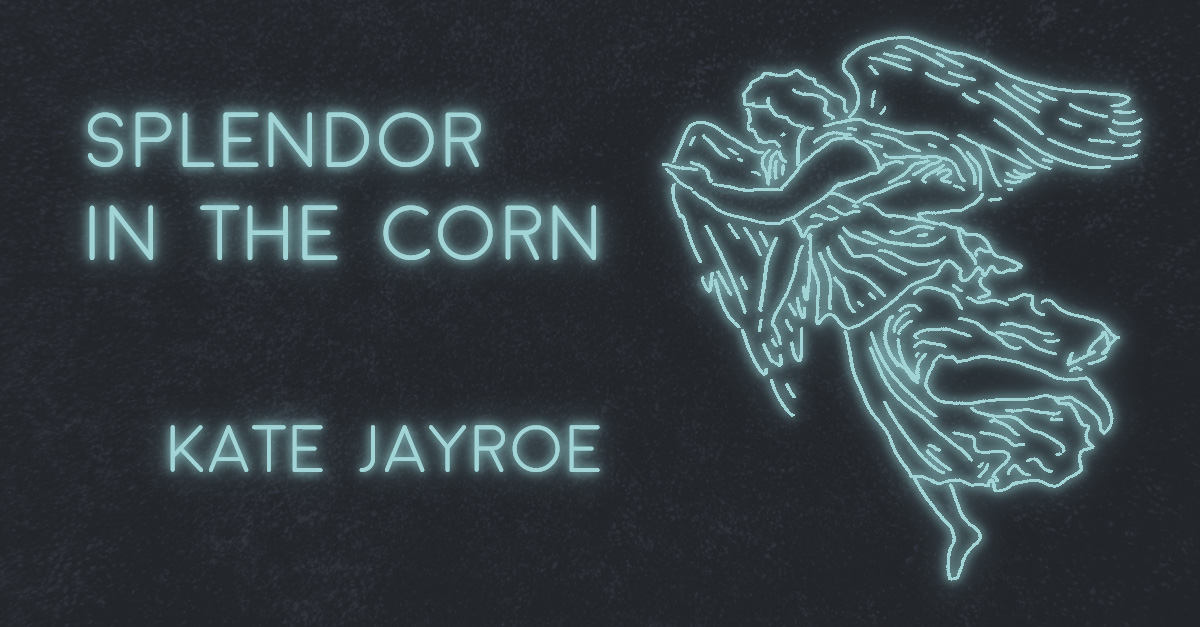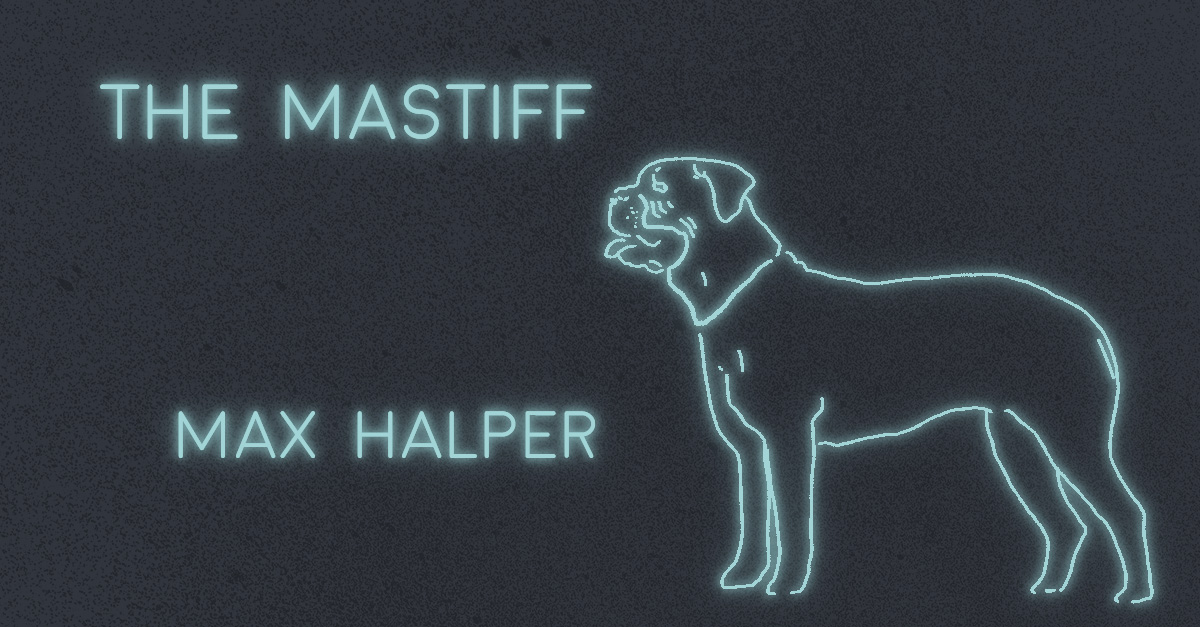Most people have no idea what goes on in retirement communities. They don’t care to know. When your kids dropped you off at Del Largo Sueño a few years go, they made tearful promises to visit, but you never saw a tear fall. They faked guilt to hide the happiness that they wouldn’t have to watch you die. Your son, Clifford, and his new wife didn’t stay long enough for you to unpack and hang your sweaters. Your daughter waited around, and then she asked for “gas money.” She’d been biting her cheek all day, her eyes sunken like little pits from whatever drug she’d decided to date that month. Gas money...like you’re too old and stupid to know the truth.
But the currency of their false guilt didn’t amount to much considering you haven’t seen your son or daughter since that day. You’ve forgotten about them, mostly. This place makes it easy. And they’ve likely forgotten about you too. A whole life lived, seeds planted so that an existence can be remembered, and it’s all forgotten like a fart in a high wind.
And you’re not going to talk about your ex-wife. She died trying to throw a toaster in your bathwater. She doesn’t deserve the headspace. None of this is about them anyway. This is about your life at seventy-nine, when you finally found something worth living for.
#
You’re cruising in Hank Hubbert’s E-Z Go that’s done up to look like a seafoam green ‘57 Chevy BelAir. He’s got the pedal down, the wind flapping the six hairs you have left. It feels like you’re going 80mph, but you’re probably going about 10mph. Hank passes you a joint of Birdbrain OG Kush. You take a drag, even though the doctor told you to stick to edibles. Golf clubs rattle in bags in the back. Hank’s got a shotgun in his golf bag for skeet shoot.
As you pass a group of women finishing up a game of bocce ball, Hank says, “I got a nine-iron they can use. Guaranteed to give ‘em a hole in one.”
Laughing rattles the emphysema in your lungs, but who cares?
Hank points to one of the ladies you’ve never seen. Must be new. What you do notice are the gloves on Hank’s hands. He’s been wearing them lately. You haven’t seen him without them for the past week or so. “That’s Marion Chapel. New broad. She’s got all the boys under a spell around here.”
You say, “I can see why.” Even though you can’t. She’s nothing special.
Hank says, “Maybe. But boy, does she have a daughter I’d give away the rest of my pension for.”
You say, “Does she?” and Hank laughs. But you really want to know: does she?
Men like Hank––and this place is all Hanks––usually get at women in the community as a way to get closer to their daughters. And sometimes sons, if that’s their boat. These Hanks think that these daughters desire them just as much. You’ve never had an interest in them. The younger they are, the more you’re aware of how hopeless they are. They believe the world is tailored to the young. It’s not. The world isn’t even a place for people. Not anymore. You see the young ones, the ones that Hank and all the Hanks go for, and you feel sad.
There is someone in the community that has you wholly unable to look at any woman, young or old. Not even Hank knows about her.
#
Sun City, AZ is a place that wouldn’t exist if not for the Almost Dead. And Del Largo Sueño is its capital. You have everything here. Whole Foods, AMC theaters, two Greg Norman-designed T-National golf courses, a wildlife refuge with any animal you can imagine, six marijuana dispensaries, twenty-one restaurants that stay open late––for those who eat dinner after 6pm––and a four-story recreation center.
After midnight, the top floor of the rec center transforms into a gambling den to rival any casino in Vegas. There’s no blackjack or Texas Hold ‘Em. People don’t bet on horse races or football games. No thirty-large on hard eight. No slot handles. People put money on the death pool. Everyone’s name and odds on a blackboard, behind the makeshift bar. You’re sitting at 30-to-1 to die within the year. Suicide voids all bets. You put five-large against yourself. Other than that, you don’t play the games anymore.
You sit alone at a table near the back of the room. You sip on seltzer water with a twist of lime, even though you’re not thirsty. The light in the room’s dim and the music––the Jerry Lee Lewis version of “Whole Lotta Shakin Goin On”––coming out of the speakers is loud enough so those who left their hearing aids at home can hear it. You scan the room, playing the part of yourself very well.
In an adjacent soundproofed room, men and women play Russian roulette. They handle the gun with maddeningly calm smiles. A table next to yours plays Guess the Pill. They slam hundreds into a pile on the table. There’s a line of crushed pill next to an unlabeled orange bottle.
“Two hundred on that being a klonopin,” says someone whose name you’ll never remember.
“Double that it’s a proto-pumper,” says another whose name is just as lost.
The one betting two hundred snorts the powdery line. You get up from the table, make your way across the room. In the time it takes you to get to the fight studio, Two Hundred clutches his chest and drops dead. Everyone scrambles to the bar to collect on the death pool.
You pass a table where Marion Chapel sits at the center of a group of Hanks that look like babies begging for their mother’s tit. Another Hank joins the table, bows as he hands Marion a drink. She’s eating up the attention, laughing like a broad right out of a Bogart movie. A candle on the table casts a moving light on the underside of her face, and the effect is unsettling. Her eyes break away from the attention and meet yours. They’re serious eyes, and you can’t hold onto them very long.
The only game that interested you here was the Fight. In the studio where, during the day, women shuffle through arthritic Zumba, some of the former boxing coaches have set up a makeshift fight. Men don’t fight here. Animals do. Mostly ostriches. Taken from the wildlife refuge. Hopped up on Viagra and Vicodin, the old veterinarians and one retired zookeeper usually haul the birds back here on their flatbed E-Z gos. You used to join them.
The setup is simple: two enter, one leaves. Anyone who’s never seen ostriches fight, it’s terrible. They kick the hell out of each other with taloned feet until gaping wounds and blood loss results in one victory and one death. You used to have a sure bet: a big strong alpha male. He’d never lose a fight––until he did. And with that one, you lost a lot of money. But that’s not why you stopped.
It was because of Rati.
#
There she is. Standing in the sun rays of a new, cloudless day. Birds sing overhead, a soundtrack of everyday magic. This moment is just for you and her.
You know she’s seen you by the way she drops down to her knees, wings spread, feathers shaking. Her head lolls back and forth, neck puffed out. Even though her head’s moving like one of those inflatable men at car dealerships, her eyes stay primally focused on you. Your eyes never leave hers. You haven’t taken Cialis today, but the pressure in your groin is a liberation from the weight of Time and Death.
Rati chirps and growls, pulling deep within that struthio body to let you know how she feels. You run your fingers along the letters etched into the wood of her corral gate: R-A-T-I. Rati. A gorgeous word. Ra-Ti...the tongue taking a trip two steps down the palate to tap, at two, on the teeth...One of the first things you’ve ever said to her. But you forget where you heard it originally.
Love has never been in your DNA. You cared for people in your life. Shared laughter and sadness. But you never loved, nor did you feel loved. Your children are just waiting for the moment they don’t have to think of you and realize you’re still someone on this earth––not in it. You never loved your job, despite keeping it for forty years. Who in the hell would ever say they love being a maintenance technician for a cheap airline.
But the love you feel down to your essence for Rati is so pure. More than any lust or longing you’ve ever had. It is true. Her dance tells you she feels the same. Her feet tap out the word: L-O-V-E. Never did you think those letters would come together into a recognizable shape.
You know some would say you’re just playing into loneliness. Being abandoned by your children hurts, but it doesn’t hurt enough to be lonely. Maybe Rati’s doing the same, given that her lifemate was killed in the ring sometime last year. But what is love but a way to prove loneliness wrong?
She comes closer to the fence and you can smell her. The way her feet crunch the grass, thud heavy against the earth, you find comfort in that power. The new male they brought in after Rati’s mate was killed stands in the middle of the field, watching her come to you. You can tell he doesn’t like you, that he believes she’s his. She isn’t. She’s mine.
You don’t know what Rati would do if she knew that her lifemate was your sure thing, your big alpha male. You made more money on his fights than you ever did working a real job. You also wonder what she would do if she knew you had bet against her mate before his last match. You knew he wasn’t a sure thing anymore. A part of you hides the fact––even from yourself––that you didn’t want him to be a sure thing, not after you saw Rati for the first time. You wanted him gone. And she doesn’t need to know these things. That chapter in your life is over now. Unconnected to the one you’re in now. Together. Besides, you don’t play the games anymore. She doesn’t need to know anything other than your love.
Rati leans her head over the railing. You slide a hand along her face, around the back of her head. You cradle her like this, slowly pulling her face toward yours. You kiss.
You move to her ear and whisper, “I want you to come home with me.”
She shakes, her beak making this clacking sound. You reach over and slip the latch from the gate, which swings open silently. She eases out of her pen. You take her by the wing and the two of you walk.
#
“And you’re still taking the levodopa and carbidopa twice a day?”
“Yes.” You are.
“And the donepezil and galantamine?”
“Of course.” But you’re not.
Dr. Kosinski’s office always makes you want to lie. He’s got a face like a baby pushing out a big poop. The way he looks at you, at all of the Almost Deads, it’s obvious he hates his life because of how useless his practice has become. Why waste time on the Almost Dead?
“And how’s the diet?”
“I have bacon sometimes.”
“You shouldn’t be doing that. You know, and I know you know this because I’ve said it but I’ll repeat it: eggs are an important part of this diet. The omega-3 reacts positively with donepezil and will rejuvenate brain function. Bacon throws that off.”
“I remember you saying something about that.”
Dr. Kosinski flips through your chart, though you’re sure that’s theatrics. There’s no way, after all this time, he doesn’t have your chart memorized. “Your drug test didn’t come back. Your urine ate through the plastic cup, but so did everyone else’s so what can I do?”
He looks at you with raised eyebrows, expecting you to bow your head like a shamed child. You run your tongue over your dentures, feeling stray pieces of bacon. He looks down at your chart again.
“What brings you in today?”
You say, “My testicles have been tingling. They hurt. And I’ve been having dreams about having children.”
“You don’t have testicles. After the cancer.”
“But these dreams feel real. And it’s not like I have one or two kids. I’ve got like fifteen. Maybe twenty.”
“That’s a side effect of the galantamine.”
Again, you don’t tell him you’ve stopped taking that months ago. Instead, you say, “And what about the tingling? In my testicles.”
“Describe the tingling.”
“It’s this fullness. Pressure. I can’t say it’s unpleasant. I feel stronger sometimes.”
“That’s a good thing, yes?”
You shrug.
“Other than that, are you noticing anything different with your body? Your penis? Fingers? Mouth?”
“Different how?”
Dr. Kosinski closes your chart. “Some of the other more sexually active residents have complained about recent changes to their body. Like within the last week or so.”
“Changes.”
“One came to me complaining of jock itch. I checked him and his entire groin area looked like cooled lava. Marbled skin. Open sores. Another patient...had it in his mouth. Really terrible stuff. ”
“My jock itch is jock itch.”
“There’s been more. And there’s a common thread. Now I’m not supposed to name names, but you never remember half of this stuff, right?”
“Who are you again?”
“Have you come into contact with Marion Chapel?”
“Never.”
“Are you sexually active here?”
“Not at the moment.” You don’t tell him about Rati, mostly because she technically isn’t part of the community.
“Good. Until I figure this out, don’t. I suspect a kind of STD. All you old-timers grew up in the nuclear age. Who the hell knows what you’ve got going on inside you. I’m going to send some blood samples out for testing. In the meantime, no sex.”
“Is that all?” You interrupt his self-talk. You understand what he means about the radiation. No one knows what all that nuclear testing did to the air. But if it had changed anything, it would have long ago. This is something else––if it’s even real at all. A part of you thinks Dr. Kosinski’s just pulling both your legs.
This thing with Rati, it’s got nothing to do with radiation. You know that in your heart. It’s real, not a side effect.
Dr. Kosinski snaps on a latex glove. “Actually, I’d like to check your prostate. Make sure this pressure you’re feeling isn’t cancer.” He lubes his finger. “You know the drill.”
You do.
#
“Whoa! Christ, what am I seeing here?”
Hank moves away from you and Rati, hands covering his face in a way that reminds you of Dracula being shown a crucifix. Embarrassment could be a thing right now if you were interested in feeling embarrassed. Hank barged in without knocking. This is now his problem, not yours. The record player spins and Spanky and Our Gang continue to belt out “Lazy Day.”
The way Rati pushes against your naked body reintroduces you to your soul. Which helps you ignore the way Hank’s half-hidden face twists in disgust. He doesn’t know what this is like. Never will.
“I...I...don’t want to know…” Hank backs out of the room, but he doesn’t leave. He’s not wearing the gloves. The finger he points at you looks like marbled, melted skin. A boil on the tip of his finger threatens to pop and squirt at you. He stands on the other side of the doorway.
“What do you want, Hank?” With your body and mind in a warm bath of relaxation––a feeling similar to what it must be like to die––you talk without anger. It doesn’t sound like your voice.
“What am I seeing?”
“It’s exactly what you think it is.”
“You’re...doing that...with an ostrich.”
“Her name’s Rati.”
“I know what the thing’s name is.” Hank finishes with a fist against the wall. You’re sure he’d rather kick something, but Hank can barely lift his diabetic legs. He shuffles when he walks. “It’s an ostrich.”
“Yes, she is.” You know he can’t imagine what it’s like. The feeling of her beak. That when two birds make love it’s called cloaca kisses––you looked that up. It’s a beautiful phrase. Tender. Sensual. Hank can’t imagine what it’s like. It’s all just fucking to him.
“Why are you doing this?”
A part of you wants to answer: love. But it’s something else he wouldn’t understand. He doesn’t have a Rati. You especially don’t want to tell him that you and Rati married each other the night before. You feel it boiling on the tip of your tongue, like your tongue’s got one of those boils that’re all over Hank’s fingers.
You say, “She makes me feel good.”
“Christ….Are you still taking your meds?”
“Are you?”
“No, but I’m not in bed with an ostrich.”
“Is that what you came here for?”
“I came here to tell you someone called the community center asking for you. Someone named Dianne.”
Daughter-in-law Dianne. Only one you know who wouldn’t know enough to call your direct number. Your son married a flapjack from Seattle who appraises damaged houses in Middle-America caught in Tornado Alley. The one time you met her she said things like Clutched the damn deal and Suckers aren’t born every minute...they die every second. You don’t know much about her, but you know enough to know you’re glad about how little you know. The reasons why she would call and not your son are all not good.
“Did she leave a number?” You move to get up and put clothes on, but Rati reaches over and engulfs you with her wing. It’s warm, so you stay with her.
“She did.” Then, after a beat, “I can’t believe you’re in there with that thing.”
“Get over it, Hank. When you’ve been worshipping at the church of Marion Chapel, I didn’t say anything.”
“Marion is a human being. She’s real.”
“Real enough to make your hand like that, right Hank?”
Nothing from Hank. You can picture him on the other side of the wall, looking at his fingertips, their little lips pursing at him.
You say, “Leave the number. I’ll call later.”
You can hear Hank move, rustle some papers, write the number. He’s probably got the little mouths whispering the number to him. He can’t remember anything. You doubt if he’ll remember this, but you know he will. He’s talking to himself, or the little mouths. For the first time since you met him, he sounds like the classic grumpy old man everyone believes old men become. You supposed both of you are. Except he doesn’t have a Rati.
He says, “Here’s the number. But listen: you’re not...This thing, it isn’t going to last. You and that thing together.”
“This thing is my wife.” When you say it, Rati shivers, lets out a purring sound. Her beak nuzzles against your neck. You look down at her feet and notice how tense her claws are. She could pounce on Hank and it’d be over for him in a breath.
Hank sighs. “You need help.”
“You need something, Hank. You’re a lonely man.”
“Like an ostrich?”
“Like an ostrich.”
Hank leaves without saying anything. Rati pulls at you and you roll over. Your hip cracks. It’s usually followed by a pain you have to grit your teeth to get through, but right now doesn’t hurt. Right now, you fall into each other for the fourth or fifth time today. Dianne can wait. Bad news always has a shelf life of forever. It’s not as important as this moment.
You reach over and place your hand on Rati’s stomach, the eggs inside already bloating her body. Eggs. Plural. You forget that about birds.
#
They say a comedy ends with a wedding and a tragedy with a funeral. Life is neither, so you usually get both.
When you call Dianne, she can barely form a sentence. Hysterical is the word you’re not supposed to use, but that’s exactly what it is. She doesn’t have to say anything. You already know.
But eventually, she gets it out.
Your son, Clifford, had a thing for public pools. Being in public pools while elderly women did their aerobics. Putting his genitals against the water jets during this time. What he didn’t know is that the water has to go somewhere. It went up, inside. His bladder exploded. What you think happened is that he confused his bladder popping for some intense sexual gratification and he went about the day, stunned and confused. He bled from the inside and the damage was too much.
Dianne says this, more or less. You can tell she’s trying to leave out details, so you piece the rest together. She doesn’t seem to care about this oddity in Clifford’s life. She’s more interested in transforming his death into her tragedy.
You say, “I’m sorry for your loss.”
She says, “Thank you.” And nothing else. You wonder if she’s forgotten that Clifford’s your son. You’ve forgotten, Clifford did too. So it’s not out of reach. Before you can say anything else, she hangs up.
You want more than anything to be back in Rati’s arms. But when you turn around to leave, Marion Chapel’s there. So is Hank. And about ten other residents of Del Largo Sueño. A mob with canes and hearing aids instead of pitchforks and burning torches.
Marion Chapel says, “Hank tells me some disturbing things about you.” The skin on her neck has that cooled lava look.
Hank says, “Where is it?”
You say, “Where’s what?”
“The bird.”
“She flew away.”
You want to run, but you can’t. And even if you could shuffle out of this, there are men in this mob who can shuffle faster than you. Hank comes close to you. He’s trying to get friendly.
He whispers, “Listen: just let this be over. I don’t want them to do this to you.”
You don’t think about it. You rear back and slam your fist against Hank’s nose. Every bone in your hand shatters like tortilla chips. Hank stumbles back, blood splooshing from his nose. He’s shocked, desperate. He screams.
And the mob descends on you like a bad dream.
#
“No, you can’t do this!”
You’ve already tried to overpower Hank, but you’re on the ground now. He stands over you. Something cracked when you hit the rec center’s unkind floor. You can’t feel the pain yet. You try to stand, but your legs are too loose.
“Stay down, you old bastard.” Hank’s got his wrinkled hands balled into fists. “I told you this thing wouldn’t last.”
Other people in the mob mumble similar things. Someone laughs. Someone says Poor sonofabitch is over the edge.
You can’t stay down. The way men in the mob have Rati by the neck, the way her head trashes. You rage. The two old-timers who run the death pool hold the door open to the Zumba studio. “Turn Turn Turn” by The Byrds spills out of the studio, casting a twisted optimism over everything. Inside, the male ostrich waits, feathers fluffed, its chest puffed. Its big legs step in place, massive talons clacking against the polished wood floor. Two of the stronger residents stand behind the safety of a raised DJ booth and hold the male ostrich back with a long leash. Hank takes Rati and shoves her toward the door.
“Stop, goddammit. That’s my wife!”
Everyone laughs. You push yourself up. Your hand slips and your face cracks against the floor. Your dentures clatter out of your mouth. The skin on your chin splits and blood runs freely. You haven’t been taking your coagulant.
“This is horrible. I can’t look at him,” says Marion Chapel. She’s at the front of the mob gathered for the upcoming fight. The men who surround her are all disfigured from the Marion Chapel Disease. They’ve all got a sedated, awestruck glaze to their faces.
Hank says, “You should’ve just gotten together with Marion. Or one of the nice human women here.”
Someone in the crowd says, “Or men.”
Marion says, “I would’ve never been with him.”
Hank says, “There are plenty of people who need someone in their lives. Not this bird.”
Hank almost has her all the way in the Zumba studio.
You shout, “Wait.”
Hank stops, giving you a chance to look Rati in the eyes. You two hold the look, connect like you always did at her pen. You say to her, “I’m sorry.” Then you turn to Hank and say, “Let me fight instead.”
Hank’s face drops. Rati freezes, eyes go wide. No one speaks. Everyone starts trading looks that say Now this could be something different.
Marion says, “He doesn’t know what he’s saying.”
Hank says, “That thing in there’ll kill you in a second.”
You say, “Maybe. But that means it won’t kill her. Or my children.”
A collective, “Your what?”
You say, “I’ve got pretty good odds on the death pool there. I’m not killing myself. I will fight. Let me do this.”
One of the guys who runs the death pool hurries out of the studio and starts collecting bets from the mob. He keeps shouting odds that change with every bet made. Hank pulls some money out of his pocket and slips it into the bookie’s palm. He looks back at you and the two of you share a smile like you’re friends again.
You say, “Against me.”
He says, “A sure thing.”
“I’ve got money on the death pool. Give it to my wife when this is over.”
Hank nods. “Sure. I can do that. Whatever you need.”
But you can’t imagine Hank bringing the money to Rati in her pen, or turning that money into something Rati might need––or that your children will need. You can’t imagine that Hank won’t make Rati fight anymore, or that your children won’t grow up to fight for the entertainment of the next rotation of residents of Del Largo Sueño. What you can imagine is Hank taking the cash, buying himself a new E-Z Go, taking Marion Chapel out for a high-dollar early bird. You know he’s just saying yes so you’ll get in there and die quick.
Someone shouts from the mob, “Let the man take a cane or something.”
Someone answers, “If he does, change the odds.”
Hank helps you up. Whatever cracked in your hip isn’t keeping you from taking small steps toward the studio. You shuffle past Rati and she cranes her neck in front of your face. You slide your hand down her beak to the side of her face. Her eyes are wet. A tear falls. You try and catch it, but you’re too slow. You try to say I love you but without your dentures it comes out as an all-gums I thopff eww. She looks around, pecking absently at things in the way ostriches do. She pecks at your hand, then at your shirt. She picks up a pill that’s fallen onto the floor and shakes it down her throat.
Hank shoves you through the door. You stay on your feet, but it hurts to do so.
He says, “See you on the other side.”
It occurs to you that if there is somewhere after this, it’s a place where Hank will be as well. You want to say I hope not, but you know it’ll come out sounding like a wet sneeze. So you give him a middle finger that’s bordering on arthritic.
From the mob, you hear someone say, “They make huge omelets. Lots of omegas.”
Hank shuts the door. Locks it. The Byrds keep singing turn turn turn, but everything here stays the same.
This is where it ends. Standing in the studio. Joints made of sand. Dentures gone, all gums. Prostate feeling like a hot rock. Every ounce of you bloody and fragile. The male ostrich is twice your height, its body like an idling train. Massive. Ready to do damage. It stomps the floor. The vibration rings through your bones, makes your hip whine. You try and stand a little straighter.
You look over at the window, at all the ravenous faces ready to watch you die. Impatient for the small time between now and then. There isn’t an ounce of sadness or awareness. Your eyes stop on Rati. She pecks at the window, the space between the two of you so little but impossible to cross.
You slip ahead in time. To a future where you and Rati have a home that’s somewhere not here. Rati’s in your backyard, laying your children in a shallow hole, returning to that hole twice a day to turn your children so they don’t spoil. You’re in the house, still healing from the fight. When she comes inside, you will make a joke about her head in the sand. She will peck at you playfully. You two will sleep together every night, comfortable and warm. Loved. She will lift you both physically and emotionally. She knows exactly who you are. You know everything she can be. You both are in a place where people don’t point, where your love isn’t cursed. And eventually, your children join. Dozens of perfect little ones, better than you could ever be. Each time they beat their wings, your name will be the wind that lifts them. It all seems real. A place where you are strong and possible, where your children are happy and loved.
